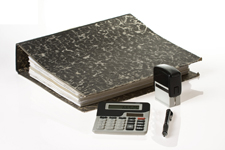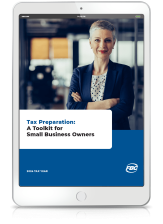Last updated: Jan. 5, 2022
Every farm and small business should resolve to maintain and improve its record keeping disciplines.
Virtually every transaction you make can have a significant tax consequence. We regularly see income and deductions that are overlooked.
Misreporting income that was previously filed can land you in an unpleasant auditing process. Overlooking valid deductible expenses will result in paying more taxes than you should.
Such missteps are usually the result of messy, inaccurate bookkeeping or no bookkeeping at all.
Any suitable recordkeeping system that clearly identifies sources of income, deductible expenses and other items reported on tax returns will usually serve the purpose.
Before selecting a particular record keeping system, keep in mind that business records are also important for third parties such as banks when you are seeking a loan.
Bookkeeping software that is compatible with your financial advisers and banking relationship software is useful.
A record keeping system should organize business transactions in journals and then record and summarize them in ledgers. For many small farms, a business chequebook and record book of transactions may suffice as the primary source.
Supporting documents associated with sales, purchases, payroll and other transactions need to be kept in a safe place, both in digital and hard copy formats.
These documents are required to be kept safely for at least six years from when the tax return was due or filed.
Some documents must be kept for an even longer time, such as those associated with capital acquisitions, and/or other fixed and long-term assets relating to farm property including machinery and buildings.
The two basic methods of accounting are cash and accrual. A farm business may use either accounting method and can be selected when you file your first tax return for the farm business. Be aware that once a method is selected, you may not switch to the other method.
Farmers generally choose the cash basis because it provides more flexibility in claiming expenses and does not add inventories on hand at year-end to income. Expenses are deducted in the tax year in which the expense is paid. This method makes it easier to match farm cash flows with the taxes due.
With the accrual method, income is reported in the tax year it was earned or when payment was made, whichever is earliest.
The accrual method matches income to the expenses for a given year, providing a more accurate assessment of profit earned. It also requires more information and may result in paying taxes on anticipated revenue.
Here are the types of basic questions that should be considered as you do your bookkeeping:
- What’s included in income and what expenses are deductible from that income?
- What will you owe in taxes if you sell some of your livestock?
- How will hiring your spouse change the amount of taxes you pay?
- What if you lease out a significant portion of your property to others to work? Does it affect your status for non-restricted farm income?
Free Guide: Tax Preparation Toolkit for Small Business Owners
We know you’re dreading it, but it’s got to be done – and with a little preparation, you can fulfill your tax obligations without any stress. Our comprehensive tax preparation toolkit will help you get organized for tax time.
Learn what information and key documents you need to prepare so you’re ready for the tax filing deadline. There’s even a printable checklist that lists all the documents you’ll need as a business owner, and tax write offs you shouldn’t miss out on. Get the prep out of the way so you can get back to running your business.
About FBC
FBC was founded on the belief that Canadians should receive every benefit of filing their taxes. Three-generations later, our family-owned business continues to support farmers, truckers, trades and other small businesses minimize their taxes, simplify their books, and pay their employees.
Take 15-minutes to connect with us. Let’s see if we’re a good fit for you and your business. Book online or call us at 1-800-265-1002



